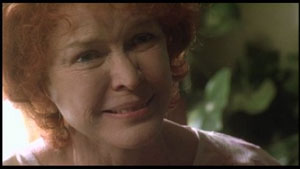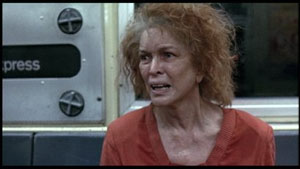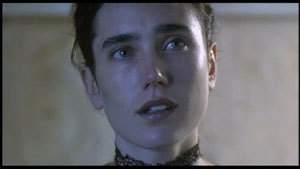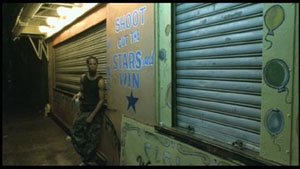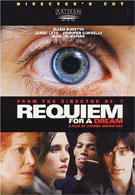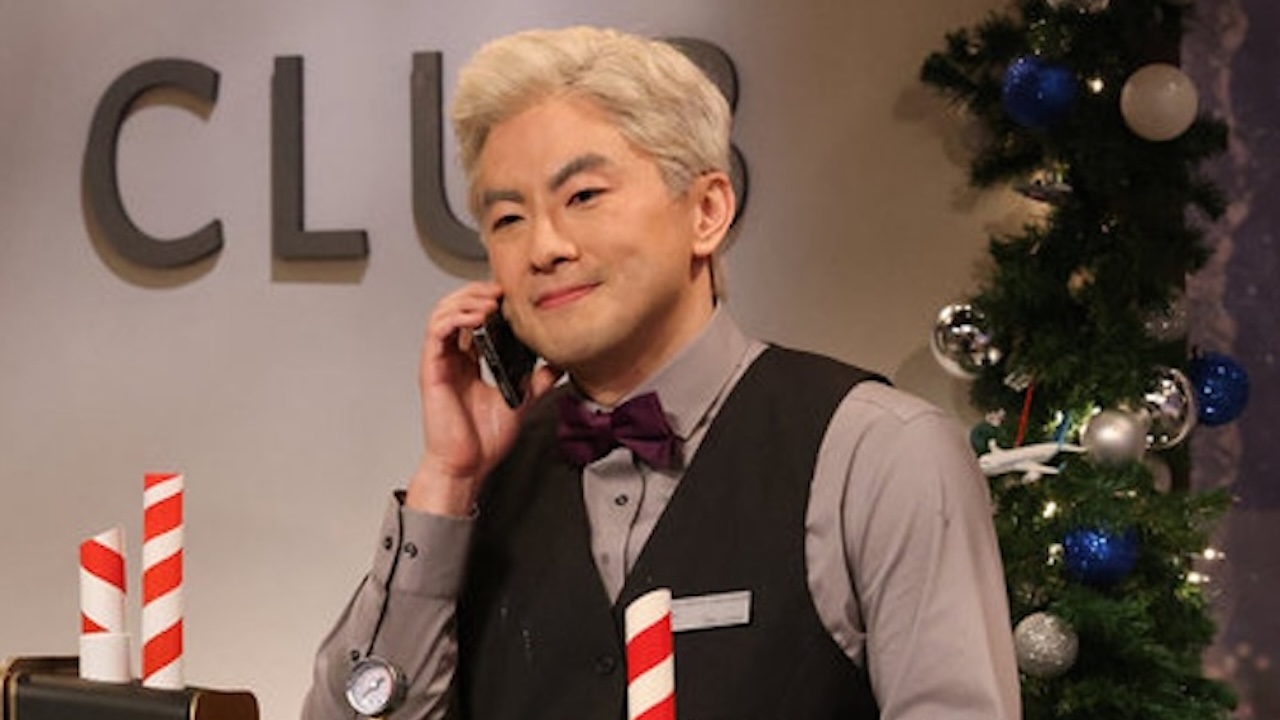Everyone needs a fix. Whether it be drugs, alcohol, sex, food, or television, everyone is hooked on something. In Requiem for a Dream, we learn what happens when your addiction deludes you, and that some addictions are metaphors for others. The only substances that are ever deemed immoral are those that are illegal. In this film, we are told that it makes no difference whether society has deemed it morally reprehensible or not, if you rely on an inanimate substance as a way of life (sex being the exception), then you are doing no better than a casual drug user.
Sarah Goldfarb (Ellen Burstyn) is an elderly, overweight Brooklyn widow who lives a repetitive, boring lifestyle with her peers. When she is given the opportunity to appear on a popular self-help television show, she decides to lose some weight so that she can fit back into a small red dress that she once wore years ago to her son’s high-school graduation. Unable to stick to a healthy diet which would deny her the pleasures of carbohydrates, she turns to diet pills. The pills turn out to be nothing more than legalized “speed,” resulting in hyperactivity that burns away the pounds, but at a cost.
Her troubled son, Harry (Jared Leto), begins running a small drug operation with the help of his best friend, Tyrone (Marlon Wayons). Immediately, they find success, but become heavily addicted to the substances as the need to test the “merchandise” grows. Joining Harry is his loving girlfriend, Marion (Jennifer Connelly), whose addiction surpasses theirs, eventually taking her even lower than anyone could have ever imagined.
As the spiraled descent begins, Harry become separated from those who care for him. He and his mother lose each other more and more, till the point that neither even seems to have the other in mind. Eventually, Harry and Tyrone become so fixated on making up for the financial losses caused by abusing their products that they forget about their friendship. Submersed in her own degrading world, Marion ignores everyone, seeing heroin as the key to her happiness.
From these people, we learn that you cannot escape addiction. The characters gradually lose sight of what caused them to begin their habit as they sink lower and lower. Gone is Sarah’s ambition to lose weight, Harry’s to be financially successful, and so on. Requiem for a Dream doesn't wallow in the supposed pleasures of drug addiction as in dunderheaded farces like Fear and Loathing in Las Vegas, but it gives the viewer an honest depiction of what will happen if what you think you control begins to control you. As the screen faded out, I was convinced that I would never consider using an illegal substance. The film refuses to make drugs look attractive.
Ellen Burstyn hauntingly portrays the loneliness of old age and insecurity. Her transformation from childishly hopeful to upper-addict is sympathetic and heartbreaking, never desperate. I felt pain as this simple woman watched her dreams die.
Director Darren Aronofsky, who plunged us into the madness of a patterned nightmare in the sleeper thriller Pi, uses the camera to tell us a story where the environment beats on the heads of the characters. The film uses showy camera tricks, never as a stylistic decision, but to enhance the storytelling. As Sarah begins to feel more abandoned, the camerawork expresses her emotions through the shot. In moments of jumpiness, the camera rattles as if suffering an attack of its own.
Your Daily Blend of Entertainment News
Requiem for a Dream ends on an especially downbeat note. As one of the more depressing conclusions in recent memory, the film never takes the easy way out. Because of the message, Aronofsky stays true to his story. He knows that in order to properly tell a story about being trapped, he must not make any escapes himself, settling for a dreamy, “everything is going to be ok” finale. As the film came to a conclusion, I knew that nothing was ok, and nothing would ever be ok. At some points, the film is painful to watch, almost torturous. Yet at the same time, we are taken so deep inside that we dare not look back. In a film so much about everyday addiction, I found it appropriate that I had trouble looking away.

